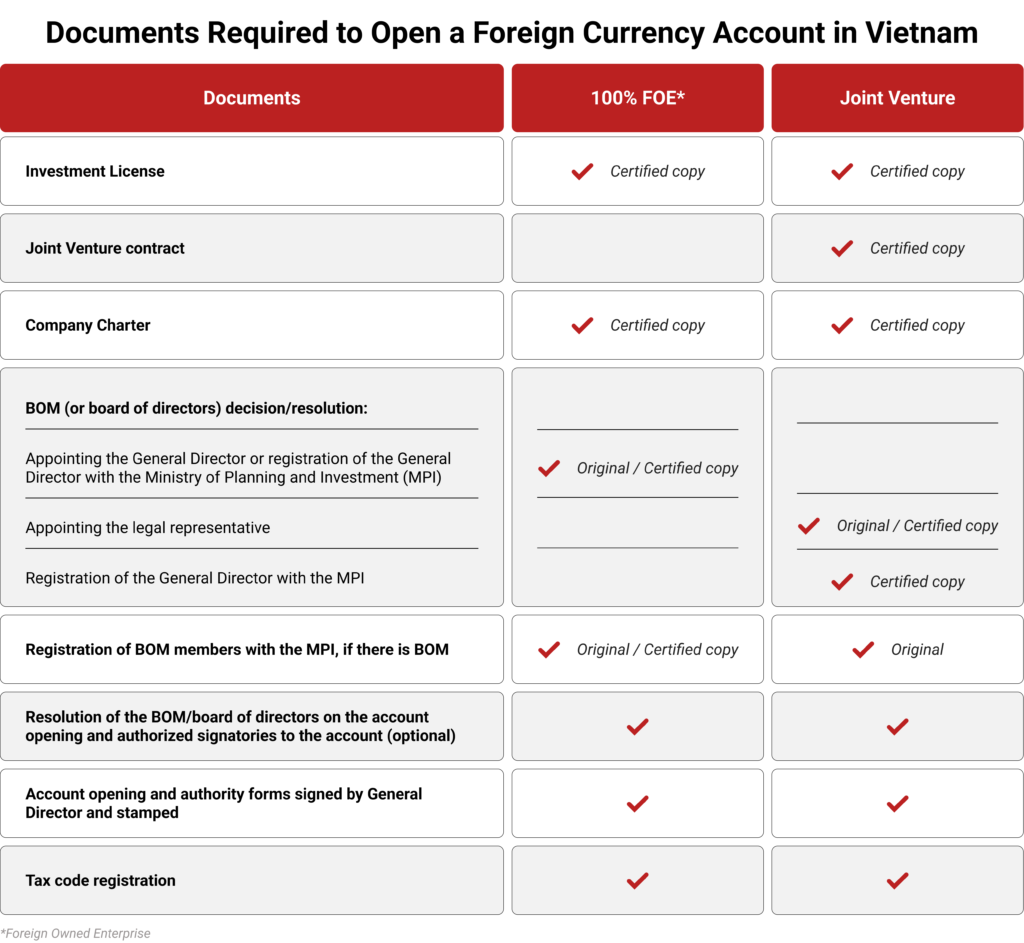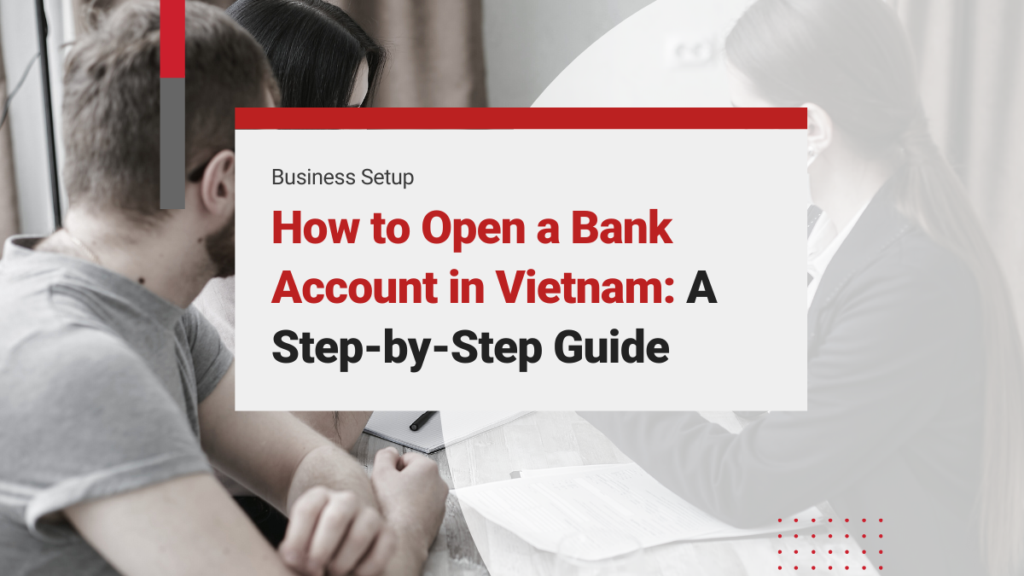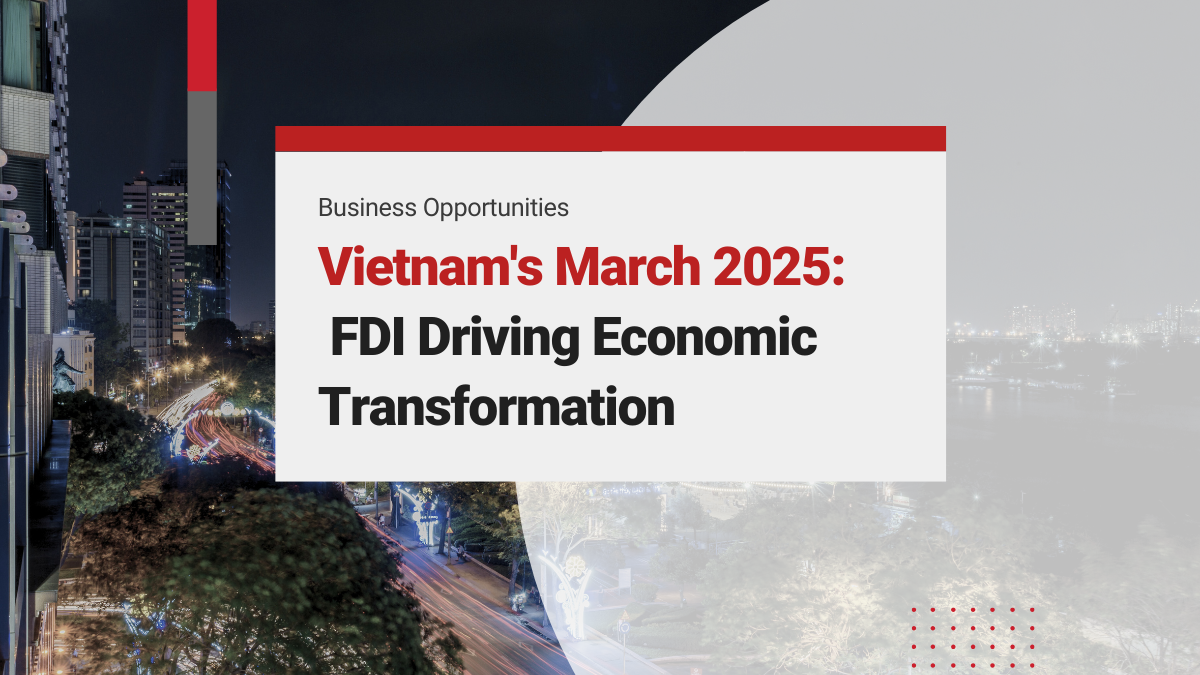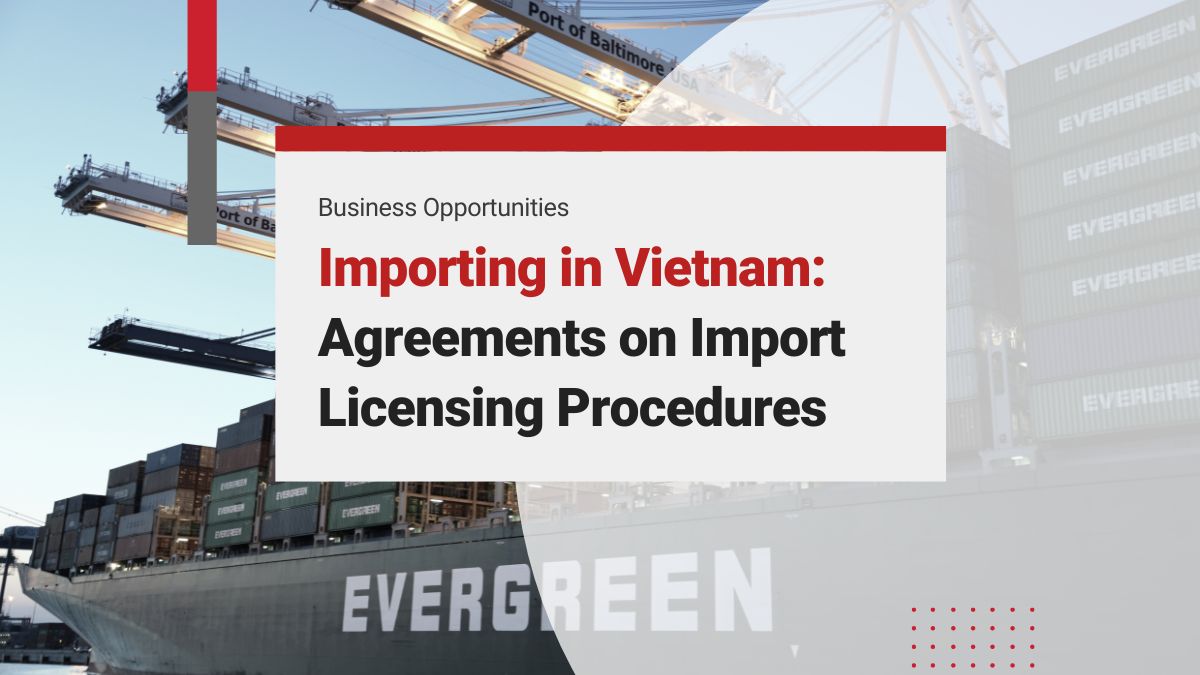As one of Southeast Asia’s fastest-growing economies, Vietnam’s banking sector offers a robust and efficient financial system for both individuals and businesses. For foreign investors, expatriates, and international companies, opening a local bank account is essential for facilitating transactions, ensuring regulatory compliance, and managing financial operations seamlessly.
This guide provides a detailed overview of the requirements, procedures, and key considerations for opening a bank account in Vietnam. Whether for personal or business use, understanding the banking landscape will help you understand the process efficiently and maximize the benefits of Vietnam’s financial system.
Opening a Bank Account in Vietnam? Explore InCorp Vietnam’s Bank Account in Vietnam for Foreign Investors
Eligibility for Foreigners
Foreigners can open a bank account in Vietnam if they hold a long-term visa or residence permit valid for at least 12 months. Recent changes have made it challenging for short-term visitors to do so, making it crucial to verify that your visa status aligns with the bank’s requirements.
You will also need to provide valid documentation such as a visa, proof of residence, and possibly proof of your source of funds. This ensures your banking activities comply with local regulations, whether managing international transfers, foreign currency, or both foreign and Vietnamese accounts.
Read More: Guide to Vietnam Visas: Types, Application Procedures and Cost for Foreign Investors
Required Documents for Opening a Domestic Bank Account in Vietnam

1. Application Form
- Company’s name
- Headquarter address
- Fax number
- Business sector
- Legal representative details
- Account holder information
- Chief accountant details
- Required signatures:
- Account holder
- Chief accountant
- Legal representative
- Company stamp seal sample
2. Establishment Documentation
- Operation license
- Establishment decision
- Business registration certificate
Read More:
- Your Easy Guide to Obtaining an Investment Registration Certificate (IRC) in Vietnam
- Required Business Registration Certificates (ERC) in Vietnam for Company Formation
3. Representative Documentation
- Identity card or passport of authorized/legal representative
4. Chief Accountant Documentation
Required if mandated by law:
- Identity card or passport
- Authorization decision
Opening a Bank Account in Vietnam: Step-by-Step Guide
To open a bank account in Vietnam, start by selecting a bank that suits your needs. Next, submit your application along with the required documents. Finally, complete the initial deposit to activate your account. Following these steps ensures a smooth and efficient banking setup.
Choosing the Right Bank
Choosing the right bank in Vietnam significantly impacts your banking experience. Consider factors such as the bank’s stability, reputation, range of services, fees, accessibility, and branch network. For frequent travelers or those needing extensive services, an international bank might be ideal. Proximity to your residence or workplace also adds convenience.
Start by researching bank options and account products. Major cities like Vietnam’s Capital City Hanoi, Saigon, Hue, and coastal city of Da Nang offer diverse banking options. Recommendations for banks with good customer service, including English-speaking support, can simplify the process.
Submitting Your Application
Most banks require foreigners to visit a branch in person to complete the account opening process. Some banks, like HSBC Vietnam, allow initial applications online, but an in-person visit is often required to finalize it. During the visit, submit all necessary legal documents and application forms, ensuring all paperwork is correct to expedite approval.
Making the Initial Deposit
Typically, an initial deposit is required to open a bank account in Vietnam. The minimum deposit amount varies by bank, so inquire directly with your chosen bank. This deposit is generally free of charge and necessary to activate your account. Confirming the specific minimum deposit requirement helps you meet the bank’s criteria without surprises.
After making the deposit, your payment account will be verified, and you’ll be informed when it is active. This final step allows you to start managing your finances, whether for receiving payments, sending money, or maintaining a minimum balance.
Some Vietnam Banks for Your Business
When choosing a bank in Vietnam, consider the services you need most and their proximity to your location. Here are the leading banks and their key offerings:
VietinBank – Vietnam Joint Stock Commercial Bank for Industry and Trade
The largest state-owned bank in Vietnam offers:
- Multi-currency trading (USD, EUR)
- Account-based loan collateral options
- Transferable account ownership
- VND deposit insurance protection
Vietcombank – Joint Stock Commercial Bank for Foreign Trade of Vietnam
Known for its extensive network of branches and ATMs nationwide, Vietcombank provides:
- Comprehensive credit and debit card services
- Modern online banking platform
- Widespread ATM accessibility throughout Vietnam
HSBC Vietnam
Distinguished by its global presence, HSBC Vietnam features:
- Robust overdraft protection
- International debit card services
- Exclusive HSBC Privilege Club discounts
- Multi-currency trading (USD, EUR, GBP, AUD, and more)
- 24/7 customer support hotline
- Digital banking solutions (online and phone)
BIDV
One of Vietnam’s largest financial institutions offers:
- Welcome incentives for new customers
- Customizable account features
- Comprehensive account options:
- Daily transaction accounts
- Savings products
- Digital banking services
- Foreign exchange services
- Premium banking solutions
- Business banking services
Costs and Fees for Opening a Bank Account in Vietnam
Understanding the banking fees associated with your account helps avoid unexpected charges. Common fees include ATM withdrawal, domestic transfer, and international transfer fees. Maintaining a minimum balance can help avoid monthly maintenance fees. Awareness of your bank’s fee structure and personal banking tariff can save you money in the long run.
ATM Withdrawal Fees
ATM withdrawal fees in Vietnam usually range from US$0.87 to US$2.17 per transaction, depending on the bank. While some ATMs may charge no fees, this is rare. Be mindful of these fees, especially if you withdraw cash frequently. Withdrawal limits per transaction at local banks’ ATMs range from US$78.80 to US$197.01, so check with your bank for specific limits.
For large withdrawals, using an ATM with higher limits (ranging from US$354.61 to 788.02) can be more cost-effective, helping you avoid multiple transaction fees. Understanding these fees and limits aids in better cash withdrawal management, saving unnecessary costs.
Domestic Transfer Fees
Domestic transfer fees in Vietnam are generally low, capped at US$0.79 per transaction, making it affordable to transfer money within the country. Whether you transfer money regularly or occasionally, knowing these fees helps manage your finances without high costs.
International Transfer Fees
International transfer fees are significantly higher than domestic fees, typically ranging from US$8.67 to 86.69, depending on the bank. These high fees can be costly for frequent international money transfers. Moreover, awareness of the mid-market exchange rate and associated fees helps make informed decisions and save money.
How InCorp Vietnam Can Help?
InCorp Vietnam offers comprehensive support to foreigners looking to open a bank account in Vietnam, ensuring a smooth and hassle-free process. Our consultants guide clients through each step, from understanding the eligibility criteria to gathering the necessary documents.
Our services extend beyond just company registration and bank account setup – our expert team ensures your operations stay fully compliant with Vietnam’s regulations while providing end-to-end corporate support. By taking care of these essential administrative tasks, we enable you to dedicate your attention to your core business activities.

clients worldwide

professional staff

incorporated entities in 10 years

compliance transactions yearly






